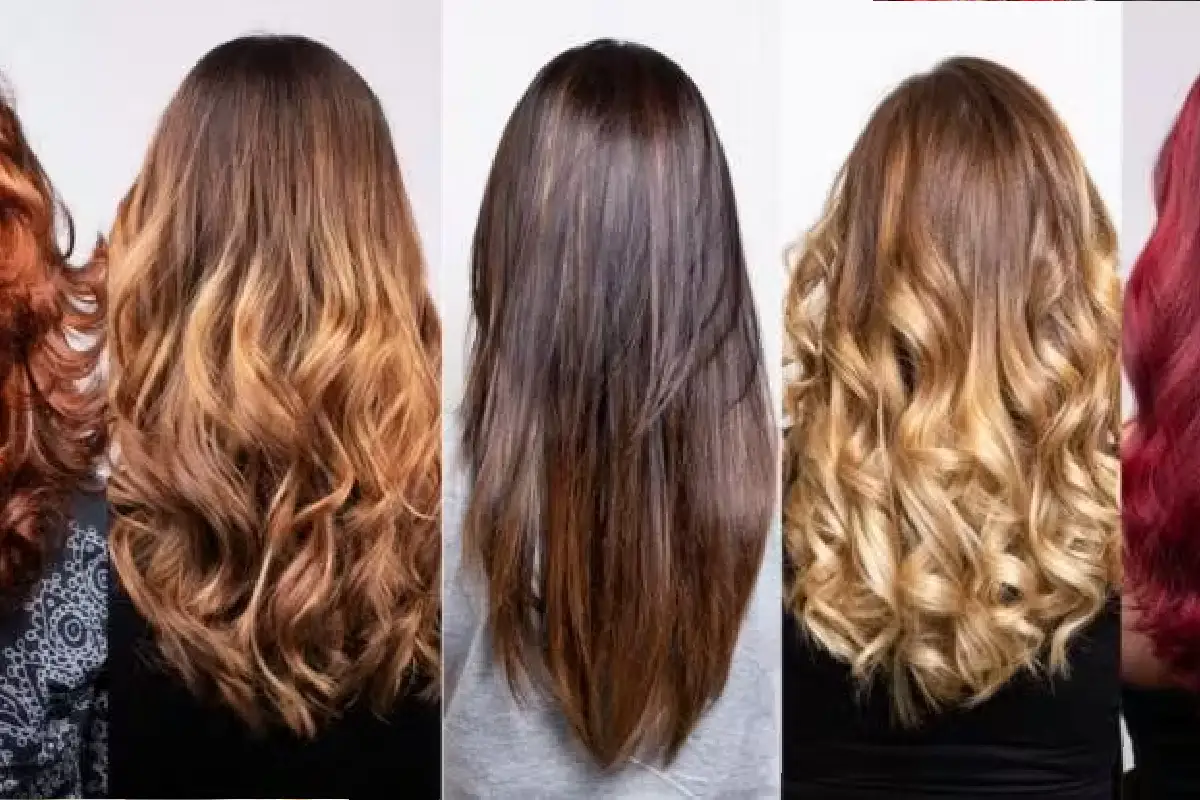Colour Hair Explanation: Recent Google history includes the list above; you’re probably considering changing your hair colour. But before successful through Pinterest boards on black hair with tourist attractions for styling inspiration, it would be a better idea to get your basics straight.
Your skin colour isn’t enough to help you choose the right hair colour, for starters. Your covering’s undertone, the colour of your eyes, what tones your hair must reflect, as well as your hair colour goal are some of the other factors that need to be considered before you pick a shade from the hair colour.
Table of Contents
Skip the Hair Colour Chart. First, Set a Goal
So, you decided to get your hair coloured. Great! The next thing you essential to do is set a HAIR COLOR GOAL. Ask yourself why you want to dye your hair and how you want to go around it.
It might be for any one of these Facts:
You Want Lighter Hair
Lighter hair means bleaching, which further means likely damage. In this case, it’s central that you know the bleaching process and how to care for your hair after the procedure. In situation, you are thinking of going blonde,
Experiment with Highlight Hair Colours
Hair colouring is a method of life for numerous people, sometimes for creative reasons and sometimes simply for covering up grey strands.
Highlights are countless ways to add depth and length to flat hair. Highlight hair colour styles range from bold red and blue streaks to a natural balayage of caramel blonde highlights, honey blonde lowlights, and golden baby lights.
Find Hair Colour Ideas That Suit Your Goal…and Skin Suggestion!
Layers of skin hidden beneath the skin give your complexion a ‘warm’ or ‘cool’ hue. There is a typical delusion that light skin colours have cool undertones and dark-complexioned persons have warm undertones. The truth is that all skin colours can have either a warm, cool or neutral tone. If your skin looks pinkish, your skin suggestion is excellent. You might have a neutral undertone if you look equally good in gold and silver jewellery.
Hair Colouring Works
When colouring, knowing your hair type is critical. Look at our Hair Science article for a basic overview of your hair’s makeup. Once you see a bit about the makeup of your coat, it’s central to understand how it touches your hair. Your natural hair colour, called melanin, is housed in the cortex of your hair – which are the cells aligned along with the hair fibre. This is why hair colouring also occurs in the cortex since it affects the natural pigment of your hair.
The Factors that Affect How Hair Colour Works
Your current hair colour makes a difference in how non-permanent or permanent hair colour turns out. If you’re not sure what shade to select, go with this longstanding hair colour rule – you can change your hair colour successfully up to three shades lighter or darker than your starting colour. If you presently have medium brown hair, for the sample, you could reduce it to a golden brown or a dark blonde or go darker to dark brown.
Hair type also makes a difference. Coarse hairs, which are prominent in diameter, generally take more time to absorb colour, while fine hair, which is small in diameter, takes less time to absorb the stain. Dry or permed hair may absorb colour faster. Since several factors touch timing, it’s essential to use a strand test to estimate colouring time.
colouring works
Hair colouring works by coating each element with colour or penetrating each hair cuticle, entering the hair cortex, and bonding with the hair’s enduring colour. While non-permanent hair colour can be shampooed out, finally, permanent colour, as the name suggests, permanently colours the hair. However, since hair constantly grows, the colour will ultimately grow out. There are other hair colour types identified in this chart just by way of different hair types.
Permanent Hair Colour Works
As the term suggests, this type of hair colour permanently colours your hair. It is the whole thing from the outside in – the process includes removing your natural colour and adding your desired colour with the product. While the colouring remains on your hair, your uncoloured hair will show through as your hair grows.
Facts About Permanent Hair Colour
Offers 100% grey coverage, even on hardy greys
Can lighten hair by 1-3 shades
It can also be cast-off for subtle colour changes
It lasts longer than direct dye crops
Root application is optional every 4-6 weeks to avoid noticeable root re-growth
More Benefits than Just Covering Up
Hair colouring is a means of life for numerous people, sometimes for creative reasons and sometimes simply for covering up grey strands. But dying your hair may offer up more benefits than just covering up signs of ageing:
Body
As hair dye plumps hair, it can produce the impression of having extra hair. In this sense, it can also act as a solution for thinning hair. It is also much less expensive other than hair replacement treatments. People with limp hair might want to give colour a try, as dying plumps the hair shaft and can make hair temporarily thicker than it was.
Shine and Dimension
In addition, subtle colour to your hair can create more varied hues that pick up and reflect light differently, making your hair appear more vibrant and exciting. It can also help tame frizzy hair by conditioning your hair and adding more weight, which helps keep your hair smooth and tame. Colour Hair Explanation
Conclusion
Anytime you add colour to your hair, you’re adding its strength. If you have weak or slightly damaged hair, a semi-permanent colour can help to build up your hair strength. Colours put a coating on your hair that can help make it stronger. Dying can protect your hair from environmental hazards like pollution, wind, excessive heat from the sun and cold temperatures in the winter. Colour Hair Explanation

